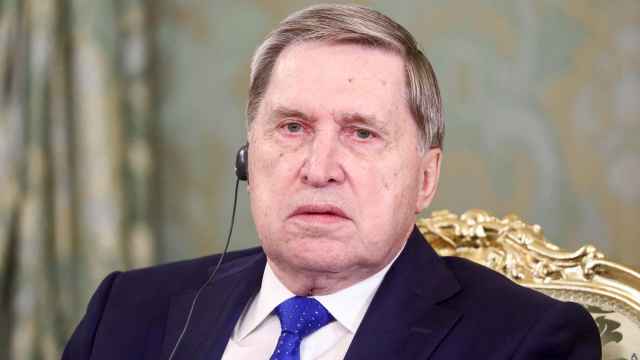Germany's foreign minister flew to Ukraine on Tuesday to help start talks between the Ukrainian government and its foes following the declaration of independence by two eastern regions.
Speaking at Kiev's Boryspil Airport on Tuesday morning, Frank-Walter Steinmeier said Germany supported Ukraine's efforts to arrange for a dialogue between the central government and its opponents in the eastern Donetsk and Luhansk regions that form the nation's industrial heartland.
Steinmeier voiced hope for a quick release of hostages and freeing captured government buildings, and stressed the importance of the presidential vote on May 25.
Steinmeier's trip is intended to begin implementing a road map for settling the crisis laid out by the Organization for Security and Cooperation in Europe, a top trans-Atlantic security and rights group.
Russia, which is an OSCE member, has welcomed its efforts to mediate the crisis and spoken in support of the road map.
Pro-Russian insurgents, who have seized government buildings and clashed with government forces during the past month, held a referendum Sunday, and claimed that about 90 percent of voters backed sovereignty. The two regions declared independence Monday.
Ukraine's acting president called the vote a sham and Western governments said it violated international law.
Insurgents in Donetsk even asked to join Russia, but the Kremlin has shown no immediate intention to subsume eastern Ukraine following Russia's earlier annexation of Crimea.
Instead, Moscow pushed for talks between Ukraine's central government and eastern regions in negotiations on Ukraine's future — a cautious stance suggesting that Russia prefers a political rather than a military solution to its worst standoff with the West since the Cold War.
The OSCE plan presented Monday by Swiss President Didier Burkhalter calls on all sides to refrain from violence and urges immediate amnesty, talks on decentralization and the status of the Russian language. Russia has welcomed the initiative, which reflects some key demands of insurgents who have denounced the central government as a "fascist junta" bent on trampling on the rights of Russian speakers.
Burkhalter said that the OSCE, which previously has deployed observers to Ukraine, will set up rapid response teams to quickly investigate all acts of violence.
He said that the road map envisages a quick launch of high-level round tables across the country that would bring together national lawmakers and representatives of the central government and the regions.
He added Ukraine has accepted a proposal to nominate Ambassador Wolfgang Ischinger of Germany as OSCE co-moderator for talks to launch the dialogue and was to name a bipartisan figure Monday to moderate them. Ukraine has yet to do so.
Ukraine's acting Prime Minister Arseniy Yatsenyuk, pledged to hold a dialogue with Ukraine's east, but he gave no specifics.
Russia's Foreign Ministry on Tuesday assailed what it called the Ukrainian authorities' reluctance to engage in a real dialogue with representatives of the southeast, saying that "it poses a serious obstacle on the path of de-escalation and establishing civil mutual understanding in Ukraine."
It urged the U.S. and the European Union to persuade the authorities in Kiev to "put issues related to the state structure and respect for the regions' rights to discussion in the nearest time, in any case prior to the elections set for May 25."
The ministry added that the referendums in the east were a "clear signal to Kiev about a deep crisis of mutual understanding and, in a broader sense, of Ukrainian statehood itself."
The Ukrainian government and the West have accused Russia of fomenting the mutiny in the east to derail Ukraine's presidential vote set for May 25 and possibly grab more land.
The insurgents in the Luhansk region said they would not hold the presidential vote.
The interim government in Kiev had been hoping the presidential vote would unify the country behind a new, democratically chosen leadership. Ukraine's crisis could grow even worse if regions start rejecting the presidential election. Dozens of people have been reported killed since Ukrainian forces began trying to retake some eastern cities.
A Message from The Moscow Times:
Dear readers,
We are facing unprecedented challenges. Russia's Prosecutor General's Office has designated The Moscow Times as an "undesirable" organization, criminalizing our work and putting our staff at risk of prosecution. This follows our earlier unjust labeling as a "foreign agent."
These actions are direct attempts to silence independent journalism in Russia. The authorities claim our work "discredits the decisions of the Russian leadership." We see things differently: we strive to provide accurate, unbiased reporting on Russia.
We, the journalists of The Moscow Times, refuse to be silenced. But to continue our work, we need your help.
Your support, no matter how small, makes a world of difference. If you can, please support us monthly starting from just $2. It's quick to set up, and every contribution makes a significant impact.
By supporting The Moscow Times, you're defending open, independent journalism in the face of repression. Thank you for standing with us.
Remind me later.






